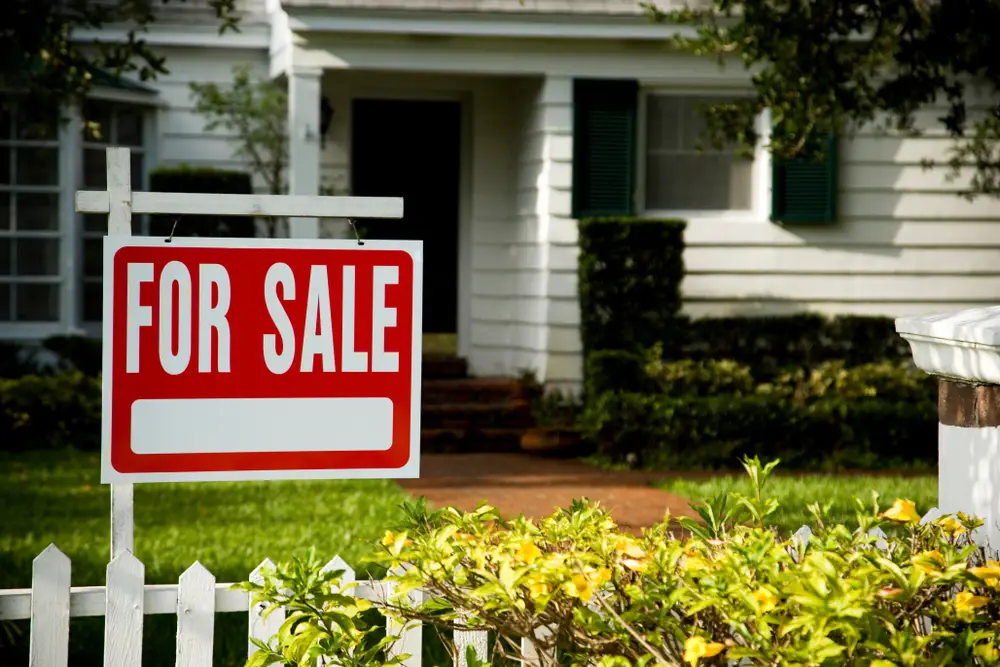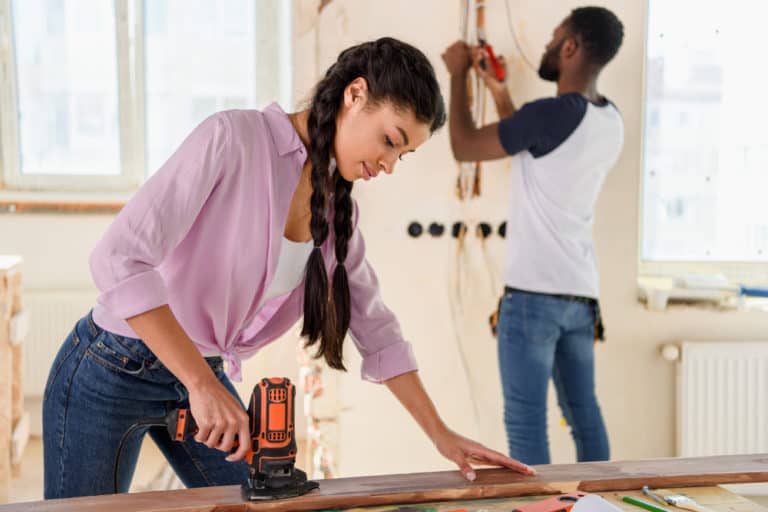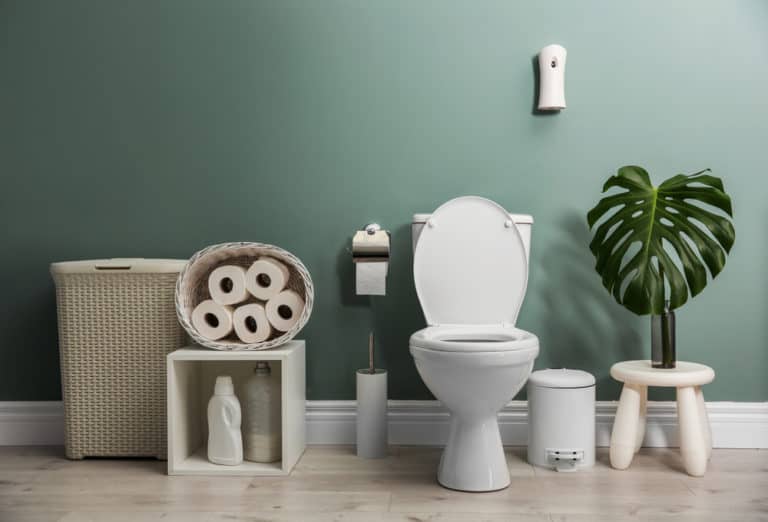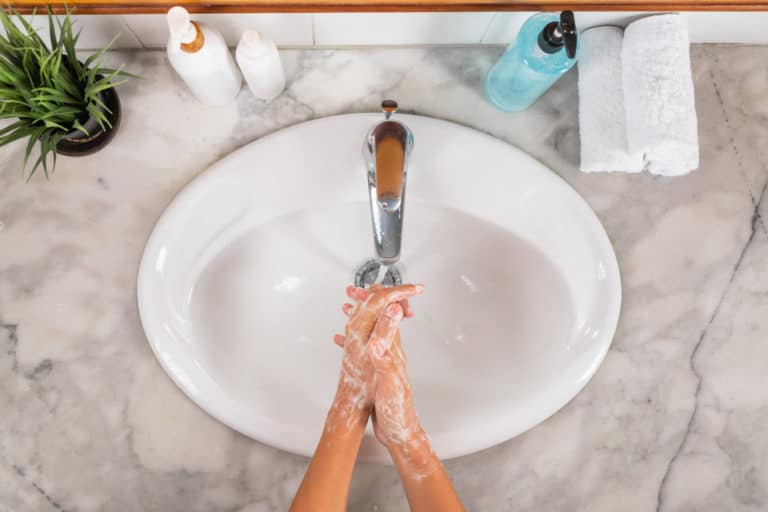What Should You Not Fix When Selling A House?
Selling a house is not an easy task. There are so many documents, processes, and standards that you have to comply with to make your home suitable for purchase. Of course, we want to get the most out of our sale, so the question is, what should you not fix when selling a house?
As a general rule, you should not fix any minor issues or parts of your home that buyers will probably change as soon as you sell the house. There are a lot of aspects of a home that, regardless of its condition, does not affect the value of your house. Things such as lights, minor cracks, finishes, appliances, etc., are what shouldn’t be fixed.
It can get confusing as each home has different selling points and strengths for buyers. A homeowner’s main priority should be to look for the best ROI when spending money to make a home more appealing to interested buyers.
What should you not fix when selling a house?
Generally, you wouldn’t want to spend money repairing or replacing parts of your home that will probably be changed again by the next homeowner. Generally, buyers are looking for homes that they can see potential in and one that also provides a lot of value.
When discussing value, not all parts of a house are valued equally. In general, the things that are easily replaced are the following:
- Finishes
Paint, trim, louvers, floor finishes, ceiling finishes, etc., shouldn’t be repaired unless they have significant damage.
- Appliances
Unless you intend on selling appliances alongside your home, it’s probably better to just keep any old devices you currently own.
- Fixtures (Ex. Cabinets, railings, etc.)
Since fixtures are impermanent and can easily be changed, they won’t impact how much your home will cost.
- Driveways/Pavements
Minor cracks don’t need to be repaired. However, if you have potholes or severely damaged pavements, you might want to fill those up to keep up appearances.
- Furniture
Couches, chairs, beds, etc., aren’t usually included when selling a home.
You still need to ensure that your home is presentable even if these items don’t affect your home’s value and aren’t worth fixing. A good cleanup of your home and making everything neat go a long way when looking for buyers.
Buyers usually have a lot of funding for making changes to a home right after they buy it, and these are the common parts of a house that they spend on to add a personal touch to their house. With that, it’s best to focus on home aspects that affect the value the most.
What should you fix when selling a house?
Now that you know what NOT to spend time fixing, it’s best to focus on what you SHOULD fix if you want to maximize your home’s value. You’ll be going over the essential parts of your home and why you should fix them.
- Structurals
This is perhaps the most crucial aspect of your home that buyers will look into. Structurals determine how long your home can stay standing up, and you may need to look into the condition of their foundation, walls, columns, and beams.
For this, you’ll need the assistance of a contractor and engineer to assess these structural components properly. It should be noted that structural repairs are expensive, but structural problems will significantly lower your home’s value if not appropriately addressed.
- Roofing
Roofs play a vital role in the home’s longevity, as they primarily protect your home from the elements(rain, sunshine, and snow). Having a roof with holes will be seen as an indication that other parts of your home aren’t in good condition.
Adding additional features to your roof(new gutters, new insulation, etc.) wouldn’t hurt either and can be another selling point that you can include for your potential buyers.
- Insulation
Having excellent and proper insulation that is up to standard is a big plus for a home’s value. Insulation in your walls, ceilings, and floors is essential to get right as having these installed involves taking the house a part which is a hassle that buyers would appreciate being able to avoid.
Suppose you want to maximize insulation as a selling point. In that case, we suggest you familiarize yourself with insulation ratings so potential buyers can quickly tell that your insulation is up to standard.
- Heating Systems
In certain parts of the country, proper heating is essential to keep a home in good condition during the year’s colder months. More often than not, heating systems are already deeply installed into a home and are too costly to remove, transport, and reinstall into another house.
Since there are different types of heating systems with different types of operations, remember to inform your potential buyer of how it works and if any current problems or issues need to be addressed.
- Plumbing and drainage
A properly functioning plumbing and drainage system is also essential because of safety and sanitation issues. Any damages to these utilities will affect the sanitation rating of your home, which can end up lowering the value of your home.
We suggest getting your pipes checked on and cleaned as needed to ensure that things are running smoothly. You can hire a plumber, and they can get this type of job done quickly within a day or two.
- Infestations
It’s a non-negotiable that you shouldn’t sell a house with any remaining termites, wasp nests, rats, snakes, etc. You can hire pest control to clear out your home of any infestations.
We’re looking for functionality and guaranteeing the home’s longevity and a home suitable for good quality of life. Often these are what buyers look into as they are also the most costly parts of the house to get right. The other parts of your home can easily be renovated and changed but
What to fix to increase value when selling a house
In the previous section, we went over the home parts that you need to improve to be habitable. However, the market has certain aspects of a home they value more than others. If you find some of the items on these lists are absent or not in the best condition in your house, you might miss out on some significant gains.
- Sidings and Windows
Often, buyers are looking for sidings and windows that only need to have their paint or trim changed. Having broken sidings and windows makes a house look worn down and is an inconvenience for buyers to fix.
As long as you budget it right, fixing your sidings and windows will get you a good return on expenses from the value it adds to your house.
- Kitchen Remodel
A modern and efficient kitchen goes a long way. We mentioned earlier that appliances don’t need to be fixed, but the kitchen can be an exception. It’s a hassle to install new sinks, refrigerators, ovens, burners, etc., so having kitchen appliances come with a house is an excellent plus for potential buyers.
- Garage
A garage in good condition goes a long way when selling a home. We all know that different parts of a garage will be quite a hassle to repair or replace(such as a garage door).
Buyers want to reduce the number of changes they’ll need to make, and many of them would like to skip replacing these different garage parts. So much so that even replacing it from scratch will recuperate.
- Ceilings, Walls, and Floors
This goes hand-in-hand with everything we’ve discussed, and we saved the best and last for a reason. Having your ceilings, walls, and floors in good condition is something that you need to pay attention to.
All of these items contribute quite a lot to the value of a home on the market. If you have the time and capability, you should explore renovating these parts of your home.
If you’re unsure of whether or not it is worth it, you can always consult a local real estate agent so that they can give you advice on what the market in your area values the most.
Do I need to hire professionals when selling a house?
Hiring a professional can be pretty daunting for some homeowners who want to sell their houses. We’ve heard many times of expensive fees, and it can also be quite scary for someone to point out everything problematic in your home. The main question in most people’s minds is if hiring one is worth it.
Well, with anything else, the answer to this question depends on what exactly you’re hiring a professional for. If you’re looking to spot problems in your home and have them fixed, then leasing is good. However, if you just want to tidy up and fix up a few things, it might be better to hire some additional help or do it yourself instead.
What you don’t want to do is increase unnecessary spending by hiring professionals to add to your house the things we mentioned in what NOT to fix when selling(Ex. hiring an interior designer for new furniture). Again, we want only to spend money selling a house if there’s a significant appreciation from spending on that thing.

How long does it take to sell a house?
With all this talk of what to fix and what not to fix, it is also essential to plan out how you prepare your house to be sold. Of course, you should expect that training to sell a house will cost you time and money. We want to maximize this time spent by timing the market to when people buy houses the most.
On average, it takes around 290 days to sell a house. The most common reason a home takes a long to sell is because of pricing, which tends to be too high. The quickest transactions often occur during March, but the most profitable ones occur in June.
To understand the market trend of real estate, we have to look at it from the point of view of a buyer. The most common reason for buying a new house is located, and most people usually have a family. It’s a smart move to prepare a home based on this market.
Whether for a new job, a new school, or just a different place to raise the kids, people want to move during the more convenient times of the year. Spring is often the best time for people to buy houses; as such, we want your home to be listed and ready to be sold by then.
Conclusion
In general, you do not need to repair things commonly replaced or changed by the next owner. Instead, you should focus on ensuring that your house is in good condition and that the parts people value should be the best prepared.
Selling a house is stressful and takes a lot of work, which is why you should treat it like work and focus on getting the best deal you can by planning accordingly.







